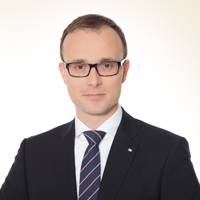1. Facts
According to sec. 4 no. 14 a of the German VAT Act, the supply of curative treatment by dentists is VAT exempt. This VAT exemption is not applicable to the supply of dental prostheses. Accordingly, German dentists have to pay VAT on the purchase of dental prostheses. As dentists regularly carry out VAT exempt supplies as far as curative treatment is concerned, they are not entitled to deduct input VAT.
The ECJ had to decide whether the purchase of dental prostheses from abroad were subject to VAT. Due to the fact that, in some Member States, such supplies are VAT exempt, caused another question to present itself, namely,
if it mattered, from which country the particular dental prosthesis was purchased. German denturists felt increasingly disadvantaged as such supplies are subject to German VAT. Competitors from EU member states that consider supplies of denturists as VAT exempt permit denturists to invoice their supplies without VAT. Therefore, the ECJ had to decide to what extent crossborder supplies were VAT exempt and how equal treatment could be assured.
In the course of three proceedings, the ECJ decided if and how VAT exemption in the country of origin and country of destination interact with each other regarding supplies of dental prostheses.
2. Opinion of the ECJ
In its decision, the ECJ confirmed that intra-Community acquisitions of goods, whose local supply by taxable persons is VAT exempt in their respective country, according to Art. 140 a of the VAT Directive, are VAT exempt. Regarding the intra-Community acquisition, only the implementation of a corresponding VAT exemption in the country of destination has to be regarded. The VAT treatment of such supplies in the country of origin has no influence on the VAT liability of the intra-Community acquisition. Since the VAT exemption of supplies of dental prostheses by dentists and denturists is not standardised within the EU, in the case of crossborder supplies of dental prostheses, it has to be checked whether the supply is VAT exempt in the country of destination, or not.
3. Conclusion
Although the judgement concerns three Dutch proceedings, it has a direct influence on German dentists and denturists. The supply of dental prostheses by denturists from Germany to another Member State is a zero-rated intra-Community supply. The corresponding intra-Community acquisition is subject to VAT in the country of destination. The applicable VAT rate depends on the VAT law of the country of destination. As regards taxation of the intra-Community acquisition, it is assured that supplies from another Member State are not subject to a higher VAT rate than local supplies within the respective EU member state.
Denturists also have to pay close attention when supplying dental prostheses within Germany. In Germany, supplies of dental prostheses are not VAT exempt. Accordingly, dentists have to invoice German VAT. This is different if dentists use the dental prostheses in the course of supplying curative treatment. Curative treatment by dentists involving the use of dental prostheses is considered as one single supply that consists of supplies of goods (material) as well as supplies of services (dentistal services). In the case of supply of such single services, the VAT treatment follows the dominant part of the supply. In the case of curative treatments, the dentist’s services are usually the dominant part of the supply. Accordingly, the single supply has to be treated as such.
In cases where the dentist uses dental prostheses to provide curative treatment, any single supply has to be treated as a curative treatment and is, on the whole, VAT exempt. If a dentist issues invoices that show VAT calculated on the amount for the dental prosthesis used in a treatment, then this is inappropriate. The dentist has to remit the VAT according to sec. 14c of the German VAT Act. Moreover, the dentist is not entitled to deduct input VAT from the purchase of the dental prosthesis as it is used to perform VAT exempt supplies. This problem does not occur if the dental prostheses is manufactured by the dentist in its own laboratory.
The VAT treatment differs from this if the dentist uses the dental prosthesis to supply a cosmetic treatment. A single supply of a cosmetic treatment is, on the whole, subject to VAT. Accordingly, the dentist is entitled to deduct input VAT from the purchase of the dental prosthesis used.
The statement “Dentists do not have to pay VAT“ cannot claim general validity. The problem is in the details. The distinction between VAT exempt curative treatments and cosmetic treatments subject to VAT is of particular practical importance with respect to VAT deduction. Denturists that supply dental prostheses to other EU member states have to ensure that the conditions for zero-rated intra-Community supplies are met.

Contact:
Ronny Langer
Certified tax consultant, Dipl.-FW (FH)
Phone: +49 (0)89 / 217 50 12 - 50
ronny.langer@kmlz.de
As per: 02.04.2015
